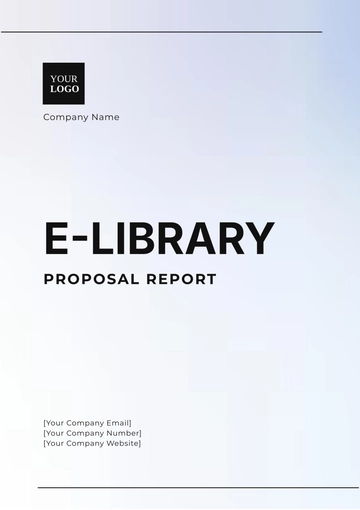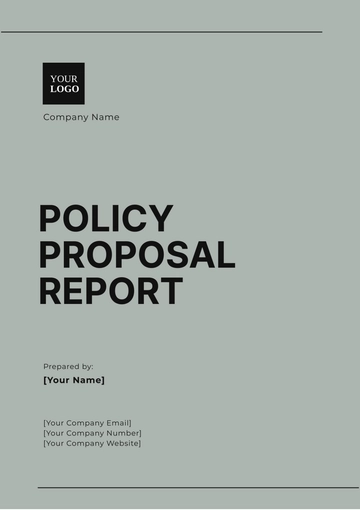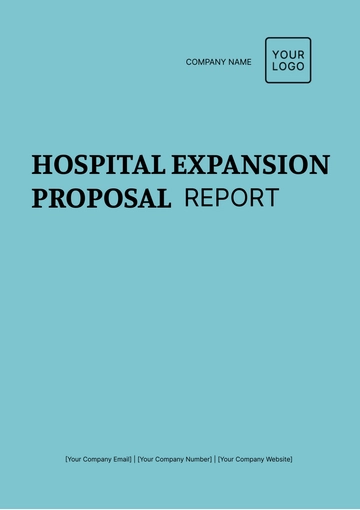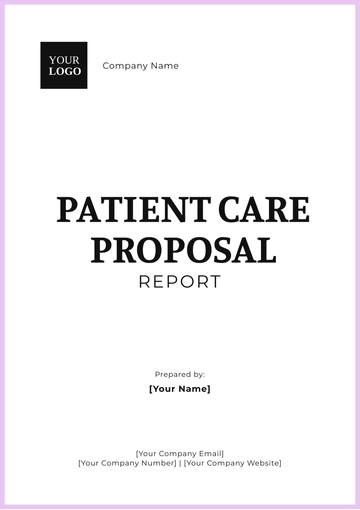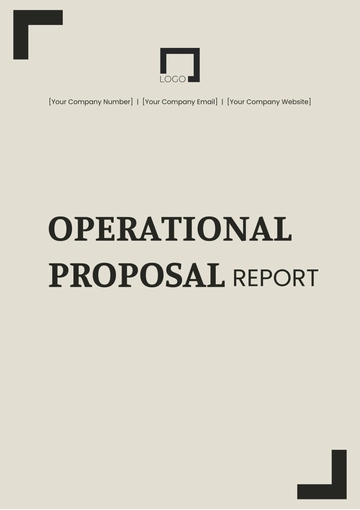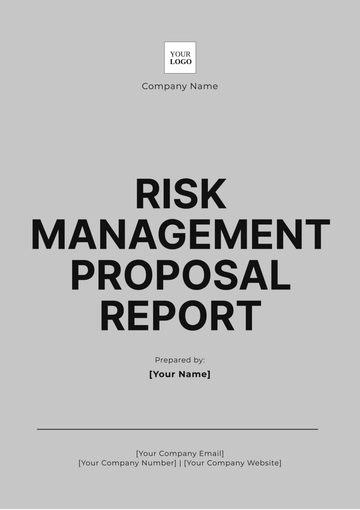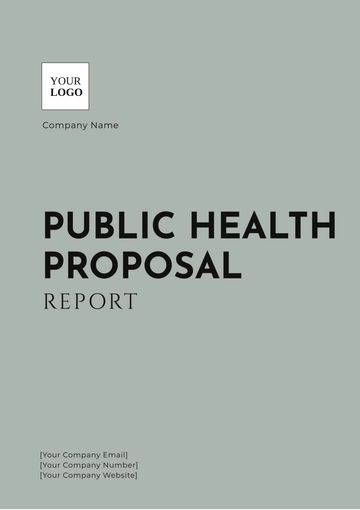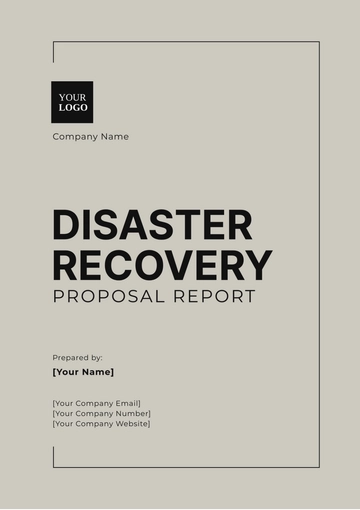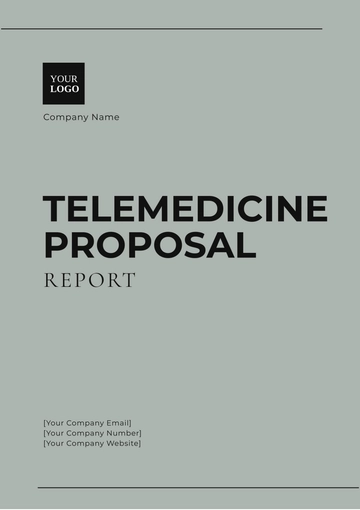Free Patient Care Proposal Report
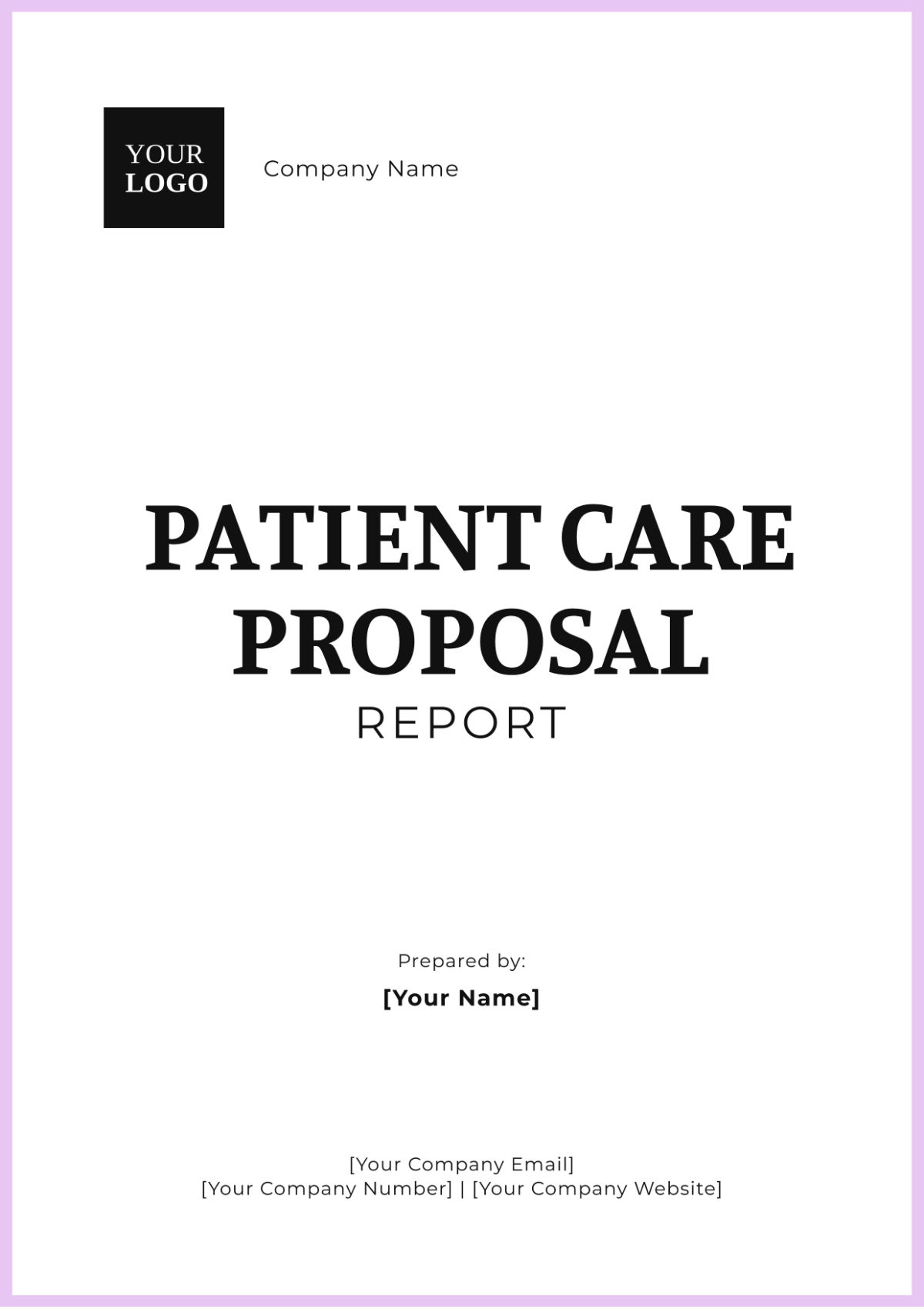
Prepared By: [Your Name]
Date: [Date]
1. Executive Summary
This report outlines a comprehensive proposal focused on enhancing patient safety and reducing medical errors in healthcare settings. The strategies recommended herein are based on current best practices and evidence-based research, aiming to create a safer environment for patients and healthcare professionals alike.
2. Introduction
Patient safety is a critical aspect of healthcare that directly impacts patient outcomes, healthcare costs, and the overall effectiveness of medical interventions. Medical errors can lead to severe consequences, including increased morbidity and mortality rates. Therefore, it is crucial to implement strategies that enhance patient safety.
3. Current State of Patient Safety
Understanding the current challenges and gaps in patient safety is essential for developing effective interventions. This section provides an overview of the current state of patient safety in healthcare settings.
Aspect | Current Challenges | Impact |
|---|---|---|
Medication Errors |
|
|
Infection Control |
|
|
4. Proposed Strategies
This section outlines the proposed strategies aimed at improving patient safety and reducing medical errors.
Strategy | Description | Expected Outcome |
|---|---|---|
Implementing Electronic Health Records (EHR) | Adopt a comprehensive EHR system to streamline patient data management and reduce errors related to paperwork. |
|
Standardizing Procedures | Develop and enforce standardized protocols for common medical procedures and patient interactions. |
|
Using Technology to Enhance Patient Safety
Leveraging advanced technologies can play a pivotal role in enhancing patient safety. Some key technological interventions include:
Automated Medication Dispensing Systems: To reduce medication errors.
Real-time Remote Monitoring: For continuous patient monitoring and timely interventions.
Barcoding Systems: For accurate patient and medication identification.
5. Training and Education
Continuous training and education of healthcare professionals are essential to maintain a high standard of patient safety. Recommended initiatives include:
Training Focus | Description | Benefit |
|---|---|---|
Patient Safety Workshops | Regular workshops to train staff on the latest patient safety protocols and best practices. |
|
Simulation-Based Training | Utilizing simulation technologies to provide realistic training scenarios for healthcare professionals. |
|
6. Evaluation and Feedback Mechanisms
Effective evaluation and feedback mechanisms are crucial for understanding the impact of implemented strategies and making necessary adjustments.
Key components include:
Regular Audits: Performing periodic audits to assess adherence to safety protocols and identify areas for improvement.
Patient Feedback: Collecting and analyzing patient feedback to enhance care delivery and address concerns.
Incident Reporting Systems: Encouraging transparent reporting of medical errors and near-misses to develop targeted interventions.
7. Conclusion
Enhancing patient safety and reducing medical errors requires a comprehensive and strategic approach. By leveraging technology, providing continuous education, and implementing robust evaluation mechanisms, healthcare institutions can significantly improve patient outcomes and create a safer environment for all stakeholders.
- 100% Customizable, free editor
- Access 1 Million+ Templates, photo’s & graphics
- Download or share as a template
- Click and replace photos, graphics, text, backgrounds
- Resize, crop, AI write & more
- Access advanced editor
Enhance patient care with Template.net's Patient Care Proposal Report Template. This editable and customizable template provides a structured approach to improving patient care. Editable in our AI Editor Tool, it ensures your proposals are detailed, personalized, and aligned with healthcare standards.
You may also like
- Business Proposal
- Research Proposal
- Proposal Request
- Project Proposal
- Grant Proposal
- Photography Proposal
- Job Proposal
- Budget Proposal
- Marketing Proposal
- Branding Proposal
- Advertising Proposal
- Sales Proposal
- Startup Proposal
- Event Proposal
- Creative Proposal
- Restaurant Proposal
- Blank Proposal
- One Page Proposal
- Proposal Report
- IT Proposal
- Non Profit Proposal
- Training Proposal
- Construction Proposal
- School Proposal
- Cleaning Proposal
- Contract Proposal
- HR Proposal
- Travel Agency Proposal
- Small Business Proposal
- Investment Proposal
- Bid Proposal
- Retail Business Proposal
- Sponsorship Proposal
- Academic Proposal
- Partnership Proposal
- Work Proposal
- Agency Proposal
- University Proposal
- Accounting Proposal
- Real Estate Proposal
- Hotel Proposal
- Product Proposal
- Advertising Agency Proposal
- Development Proposal
- Loan Proposal
- Website Proposal
- Nursing Home Proposal
- Financial Proposal
- Salon Proposal
- Freelancer Proposal
- Funding Proposal
- Work from Home Proposal
- Company Proposal
- Consulting Proposal
- Educational Proposal
- Construction Bid Proposal
- Interior Design Proposal
- New Product Proposal
- Sports Proposal
- Corporate Proposal
- Food Proposal
- Property Proposal
- Maintenance Proposal
- Purchase Proposal
- Rental Proposal
- Recruitment Proposal
- Social Media Proposal
- Travel Proposal
- Trip Proposal
- Software Proposal
- Conference Proposal
- Graphic Design Proposal
- Law Firm Proposal
- Medical Proposal
- Music Proposal
- Pricing Proposal
- SEO Proposal
- Strategy Proposal
- Technical Proposal
- Coaching Proposal
- Ecommerce Proposal
- Fundraising Proposal
- Landscaping Proposal
- Charity Proposal
- Contractor Proposal
- Exhibition Proposal
- Art Proposal
- Mobile Proposal
- Equipment Proposal
- Student Proposal
- Engineering Proposal
- Business Proposal




